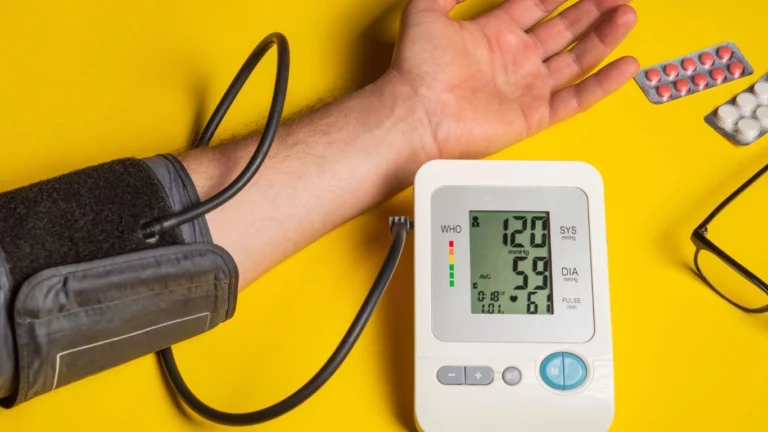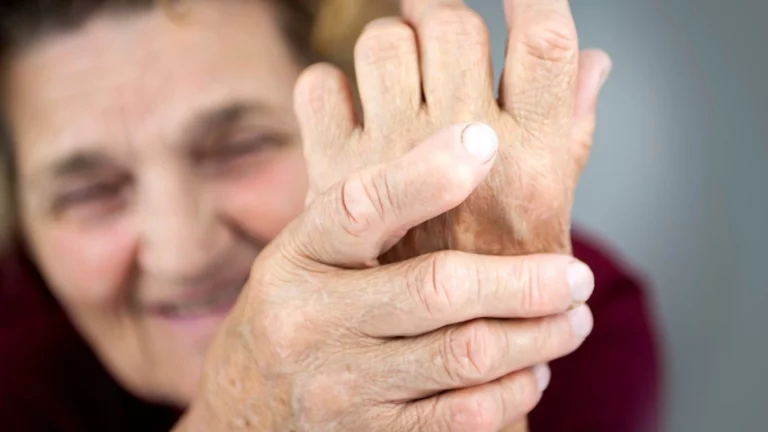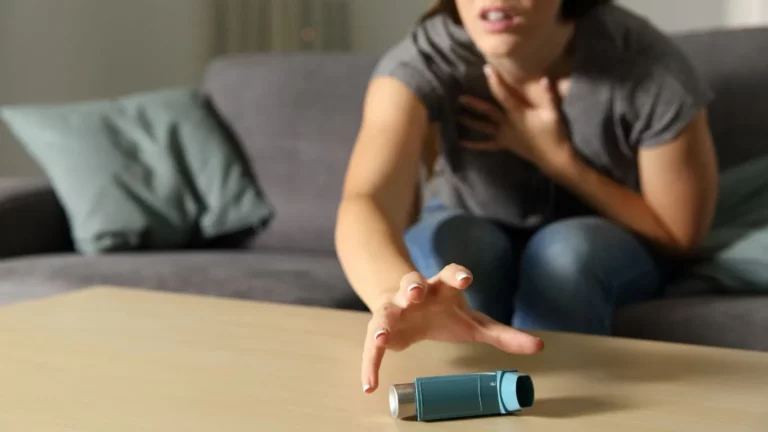How to Safely Transition Off Blood Pressure Medication: A Step-by-Step Guide
Transitioning off blood pressure medication is a journey that many patients face at some point in their treatment. As someone who has spent years working with patients on hypertension management, I’ve seen firsthand the challenges, questions, and even apprehension that come with the idea of lowering or discontinuing these medications. It’s not uncommon for people to feel uncertain about how to safely make this change, and I completely understand that hesitation. After all, we’re talking about your heart health here, and it’s no small matter. But with the right guidance, monitoring, and support, transitioning off blood pressure medication can be done in a safe and controlled way.
Understanding Hypertension and Blood Pressure Medications

Before diving into how to safely transition off blood pressure medication, it’s important to understand why you’re on these medications in the first place. Hypertension, or high blood pressure, is often called the “silent killer” because it doesn’t usually come with noticeable symptoms but can lead to severe complications like heart disease, stroke, and kidney damage if left unmanaged.
Blood pressure medications are prescribed to help control these risks. They work by either relaxing blood vessels, reducing the heart’s workload, or lowering the volume of blood flowing through your vessels. These medications are vital for managing hypertension and preventing long-term damage, but at some point, many individuals may wonder if it’s possible to stop taking them. That’s where the idea of transitioning off medication comes into play.
Why Would Someone Want to Stop Blood Pressure Medication?

There are several reasons why a person might be considering stopping their blood pressure medication. Some of the most common reasons include:
- Feeling Better: You may have been on the medication for a while, and your blood pressure is well-controlled. This can sometimes lead to the feeling that the medication is no longer needed.
- Side Effects: Medications can come with side effects, from dizziness to fatigue or gastrointestinal issues. If these side effects become intolerable, it’s natural to question whether stopping the medication might be an option.
- Weight Loss or Lifestyle Changes: Significant weight loss, dietary changes, or a new exercise routine can have a positive impact on your blood pressure. These lifestyle improvements might lead you to wonder if you still need the medication.
- Encouragement from Your Doctor: In some cases, your doctor may suggest reducing or discontinuing your medication if they feel that your blood pressure is under control. This should always be done under professional supervision.
The Risks of Stopping Blood Pressure Medication Too Soon
While it may seem appealing to stop taking blood pressure medication, it’s crucial to recognize that abrupt changes can be risky. Hypertension can still pose a threat to your health, even if you’re feeling fine. Stopping your medication suddenly, without professional guidance, can lead to a rebound in blood pressure that may increase your risk of complications.
From my experience, I’ve seen patients who feel well-controlled on their medication and decide to stop it without consulting their doctor, only to end up back in the office with significantly elevated blood pressure or even facing an emergency situation. Always keep in mind that your doctor will provide you with the safest way to navigate this process, which typically involves a gradual reduction in dosage while closely monitoring your blood pressure levels.
How to Safely Transition Off Blood Pressure Medication

If you and your healthcare provider have decided that it’s time to try transitioning off blood pressure medication, there are a few key principles to keep in mind. These steps will help ensure that the process is done in a way that prioritizes your long-term health and minimizes any potential risks.
1. Work Closely with Your Doctor
The first step in transitioning off blood pressure medication is to involve your doctor every step of the way. This is a collaborative process, and your doctor will help guide you through the decision-making process. They’ll also be the ones to determine if you’re a good candidate for discontinuing your medication.
In my practice, I’ve always emphasized the importance of open communication. Discuss your reasons for wanting to stop the medication, as well as any concerns or fears you might have about the process. This allows us to build a plan together that’s based on your unique situation.
2. Gradually Reduce Your Medication
One of the most important aspects of safely transitioning off blood pressure medication is reducing the dosage gradually. This isn’t something you should try to do on your own. Your doctor will usually suggest a tapering plan, where the dose is reduced over time rather than stopping abruptly. This method gives your body time to adjust to the lower levels of medication and helps to prevent a spike in blood pressure.
3. Monitor Your Blood Pressure Regularly
As you reduce your medication, regular monitoring of your blood pressure is essential. This will help you and your doctor assess how your body is reacting to the changes and whether further adjustments are needed. I often recommend that my patients check their blood pressure at home with a reliable blood pressure cuff so that they can share those readings during their appointments.
By tracking your blood pressure, you’ll be able to spot any issues early, ensuring that you get the support you need before things get out of control.
4. Focus on Lifestyle Changes
Making lifestyle changes is often a key part of successfully transitioning off blood pressure medication. If you’ve been able to lower your blood pressure through diet, exercise, and stress management, you may be in a better position to reduce your reliance on medication.
Healthy habits like regular physical activity, eating a heart-healthy diet (low in salt and processed foods), managing stress levels, and maintaining a healthy weight can all contribute to more stable blood pressure. In my experience, these changes can significantly improve your overall health and potentially help you maintain good blood pressure without medication.
Maintaining Blood Pressure Control After Stopping Medication
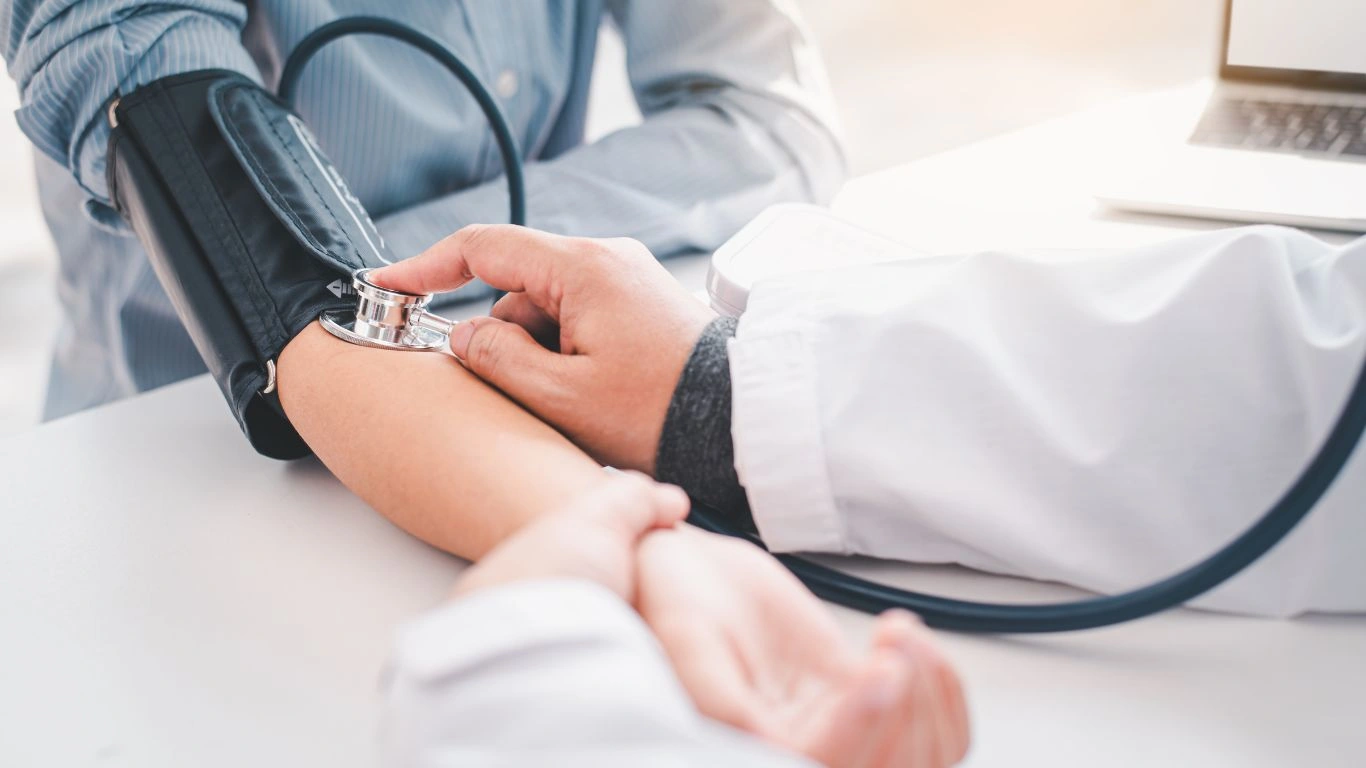
Once you’ve successfully transitioned off blood pressure medication, the next crucial step is maintaining control over your blood pressure naturally. Many people fear that once they stop their medication, their blood pressure will quickly rise again. However, with the right lifestyle adjustments and ongoing monitoring, you can keep things under control without relying on medication. In my experience, this is where the real work begins—ensuring that the progress you’ve made sticks long-term.
1. Diet and Nutrition: Your First Line of Defense
One of the most effective ways to keep blood pressure in check is through a well-balanced diet. You’ve probably heard it before, but the DASH diet (Dietary Approaches to Stop Hypertension) is a great starting point. It emphasizes eating whole foods, focusing on fruits, vegetables, lean proteins, and whole grains while reducing sodium intake. The relationship between salt and high blood pressure is well-documented, and cutting back on sodium can have a significant positive impact on your readings.
When patients ask me for dietary advice, I always tell them to start small. You don’t need to overhaul your entire diet overnight. Begin by cutting back on processed foods, which are often packed with hidden salt and unhealthy fats. Replace them with more fresh produce and lean meats. It’s not about perfection; it’s about making small, sustainable changes that will help your blood pressure in the long run.
2. Physical Activity: Exercise as a Blood Pressure Helper

Physical activity plays a huge role in keeping blood pressure levels under control. Regular exercise can help lower blood pressure by improving the efficiency of your heart and blood vessels. It doesn’t mean you need to hit the gym for hours every day (unless that’s your thing, of course!). Even moderate activity, like brisk walking, cycling, or swimming, can make a noticeable difference in your blood pressure readings.
In my practice, I’ve had many patients who’ve successfully managed their blood pressure by incorporating daily walks or yoga into their routine. The key is consistency. Find something you enjoy, whether it’s a sport, a fitness class, or just a daily walk in your neighborhood, and stick with it. Over time, you’ll start to see the benefits, and it can be an empowering way to manage your health naturally.
3. Stress Management: Relaxation Techniques for Better Heart Health
Stress is another major factor that can affect blood pressure. When you’re under stress, your body releases hormones that can cause your heart rate and blood pressure to rise temporarily. Chronic stress can lead to sustained high blood pressure, so learning how to manage stress effectively is key in maintaining control after stopping medication.
There are many ways to reduce stress, and you should choose methods that work best for you. Techniques like deep breathing exercises, mindfulness meditation, and even progressive muscle relaxation can help calm your nervous system. Personally, I’ve found that yoga or taking time for hobbies like reading, painting, or gardening can be a great way to unwind and manage stress levels. Small changes in how you handle stress can go a long way in keeping your blood pressure stable.
Regular Monitoring and Medical Checkups

Even after you’ve stopped taking blood pressure medication, regular checkups are essential to ensure that your blood pressure remains within a healthy range. It’s easy to assume that once you’ve stopped the meds, everything will stay the same. However, blood pressure can fluctuate over time due to changes in diet, stress levels, or physical activity. Keeping track of your numbers will give you peace of mind and help you identify any potential issues before they become serious.
As a physician, I always encourage my patients to invest in a good-quality home blood pressure cuff. It’s an easy way to stay on top of your health between doctor’s visits. Just like checking your weight or temperature, monitoring your blood pressure regularly helps you stay informed. If you notice any concerning changes in your readings, don’t hesitate to reach out to your healthcare provider for advice.
Building a Support System
Having a support system during this transition is so important. Whether it’s family, friends, or a healthcare professional, having people who understand your journey and can offer encouragement makes a big difference. I’ve seen patients thrive when they have a partner or family member involved in the process, especially when it comes to lifestyle changes like cooking healthier meals or sticking to a fitness plan.
If you don’t have someone close by, consider joining online communities or local support groups. Talking to others who are going through the same thing can provide valuable insights and motivation. And, of course, staying in touch with your doctor is essential—they’re there to help guide you and address any concerns that come up.
Know When to Seek Help
Lastly, it’s important to know when it’s time to seek medical help. If you notice any symptoms such as frequent headaches, dizziness, shortness of breath, or chest pain, it’s critical to consult with your doctor immediately. These could be signs that your blood pressure has risen too high, and your healthcare provider will want to assess the situation and make any necessary adjustments.
Remember, transitioning off blood pressure medication is a personal journey, and it’s not the same for everyone. Some people may be able to remain medication-free for years, while others may need to go back on medications at some point. That’s okay! The goal is to find a balance that works for you and ensures your long-term health.
Understanding the Role of Genetics in Hypertension
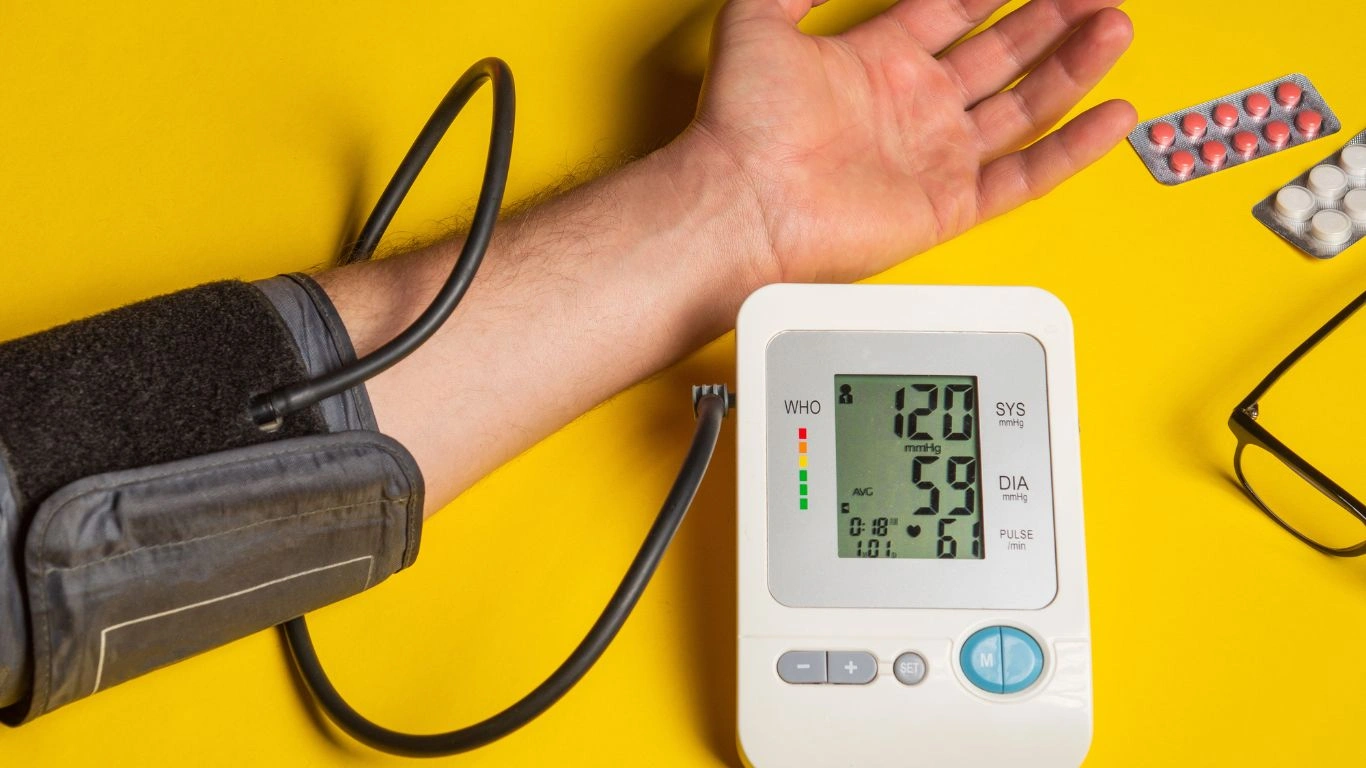
While lifestyle changes are an essential part of managing blood pressure, it’s important to acknowledge the role genetics can play in hypertension. Some individuals may be genetically predisposed to high blood pressure, meaning they may be more likely to develop it even if they maintain a healthy diet and exercise routine. I’ve had many patients who, despite their best efforts with lifestyle modifications, still faced challenges in managing their blood pressure due to family history.
Understanding your family’s health history can help guide decisions about your treatment. If hypertension runs in your family, it may be something you need to monitor more closely, even if you’re not currently on medication. In these cases, working with your healthcare provider to establish a long-term plan for managing your blood pressure—whether that includes occasional medication or more frequent checkups—can make a world of difference. Genetics aren’t a sentence, but knowing about them gives you the power to take proactive steps.
The Importance of Consistent Communication with Your Healthcare Provider
As you go through this process of transitioning off medication, it’s crucial to maintain an open line of communication with your healthcare provider. They are there to guide you, monitor your progress, and make any necessary adjustments. Personally, I always stress to my patients the importance of being honest about any changes they experience—whether it’s feeling lightheaded, experiencing headaches, or noticing spikes in blood pressure. Your doctor’s job is to make sure you’re moving in the right direction, but they need all the information to do so effectively.
Regular follow-ups are vital during this time. Even if you feel great and everything seems under control, periodic blood pressure checks are necessary to confirm that your body is adjusting well without medication. This helps identify any patterns that may need attention. I always tell my patients that managing hypertension isn’t just about being on or off medication—it’s about continuous, proactive care.
Possible Challenges to Expect During the Transition
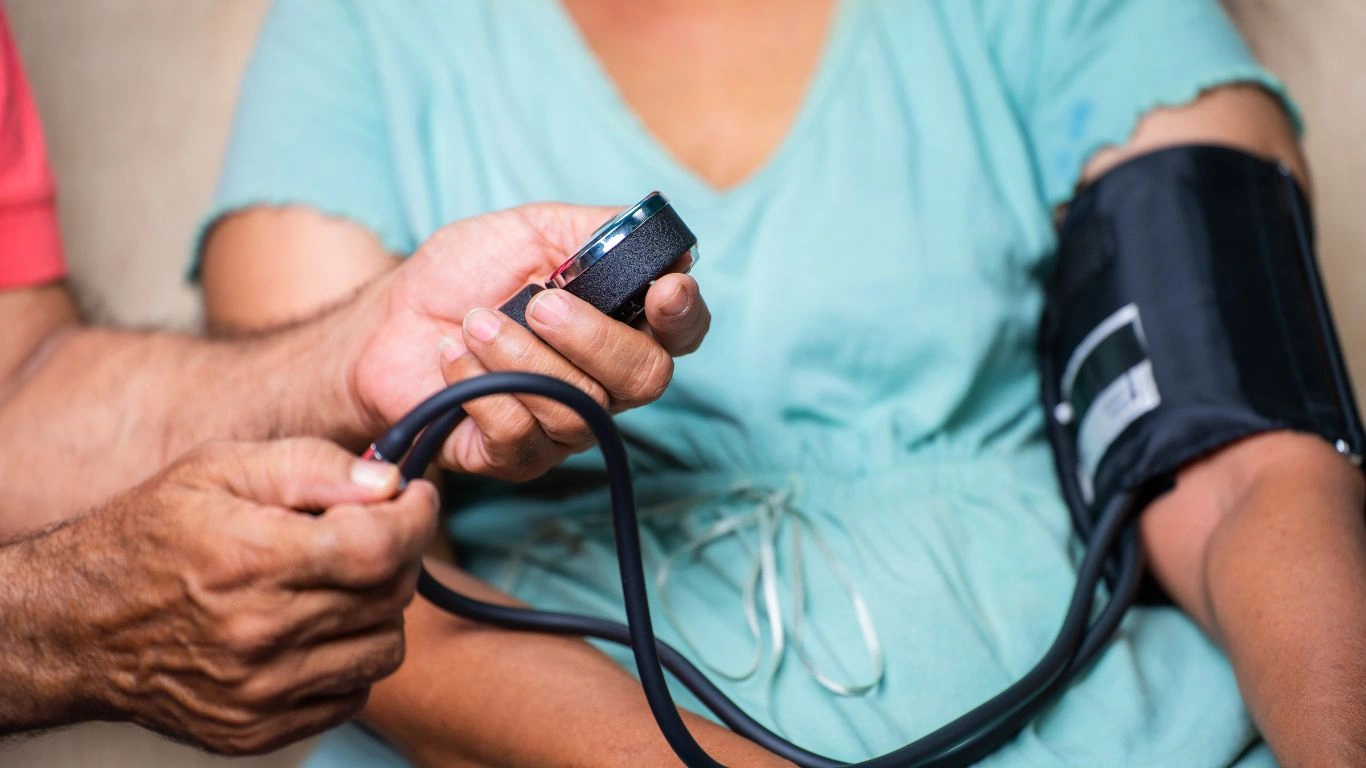
It’s natural to expect some bumps along the way as you transition off blood pressure medication. Some people might experience temporary spikes in blood pressure or even some withdrawal-like symptoms, which can be disheartening. In my practice, I’ve seen patients who are doing everything right—eating well, exercising regularly—but still struggle with maintaining a consistent blood pressure level when reducing or stopping their medication. This doesn’t mean failure; it simply means that your body is adjusting to a new normal, and it might need more time or support.
One challenge you may face is a rebound effect. This can happen when the body reacts to the abrupt lowering of medication, causing blood pressure to rise quickly. It’s why gradual tapering is so important—it minimizes this effect. Even if you’re tapering slowly, there might be days when your blood pressure fluctuates more than you’d like. That’s where monitoring and open communication with your doctor come in. If you experience any significant symptoms, they’ll be able to help you adjust the plan and keep you on track.
Dealing with Plateaus or Setbacks
Sometimes, despite our best efforts, we encounter setbacks. If you’ve transitioned off medication and find that your blood pressure starts creeping up again, don’t get discouraged. It’s important to be patient and persistent. You might need to revisit certain lifestyle changes, like adjusting your exercise routine or fine-tuning your diet. Remember, this is a marathon, not a sprint.
If you’re hitting a plateau, don’t hesitate to revisit your healthcare provider. They can help you figure out if there’s an underlying issue, whether it’s related to stress, diet, or something else. It’s important to be flexible and willing to adapt, and sometimes this means returning to a lower dose of medication temporarily to regain control. This doesn’t mean you’ve failed—it simply means you’re working with your body to find what works best for you.
Staying Motivated and Focused on Your Long-Term Health
Making the transition off blood pressure medication isn’t just about following instructions—it’s about making lasting changes that will benefit your overall health. When you’re working to manage your blood pressure naturally, the key is staying motivated and focused on the long-term benefits, not just the immediate results. It’s easy to get discouraged if things don’t go perfectly or if you face challenges, but the key is persistence.
Remember, this is your health, and you’re in charge of the decisions. Even if you need to take small steps, each one is progress. I always remind my patients that small improvements add up over time. Whether it’s reducing your sodium intake or getting an extra 10 minutes of exercise each day, each positive change brings you closer to your goal of managing your blood pressure without the need for medication.
Seeking Emotional Support During the Transition
The emotional aspect of transitioning off medication shouldn’t be overlooked either. Many people struggle with the fear of failure or worry that they won’t be able to manage their blood pressure without medication. If you’re feeling overwhelmed, it might help to talk to a counselor or a support group. In my experience, patients who have a strong emotional support system tend to be more successful in managing their health overall.
Having someone to talk to, whether it’s a family member, friend, or professional, can provide the emotional encouragement needed to keep moving forward. You don’t have to go through this process alone. A support system is vital for both your physical and mental well-being.
References
For more information on hypertension and blood pressure management, you can visit these reputable sources:
Disclaimer
All information provided in this article is for educational purposes only and is not intended as medical advice. Please consult your healthcare provider for personal recommendations tailored to your individual health needs and circumstances.

Dr. Gwenna Aazee is a board-certified Internal Medicine Physician with a special focus on hypertension management, chronic disease prevention, and patient education. With years of experience in both clinical practice and medical writing, she’s passionate about turning evidence-based medicine into accessible, actionable advice. Through her work at Healthusias.com, Dr. Aazee empowers readers to take charge of their health with confidence and clarity. Off the clock, she enjoys deep dives into nutrition research, long walks with her rescue pup, and simplifying medical jargon one article at a time.


